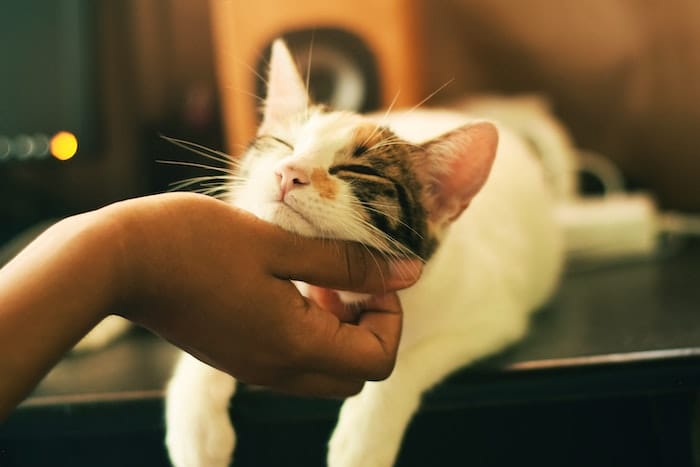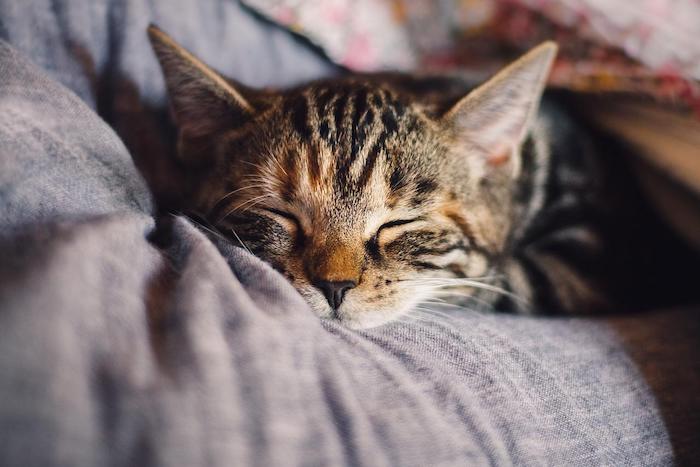Since the outbreak of COVID-19, there has been a lot of discussion about whether or not animals can contract the virus. Among the many questions people have is whether or not cats can get COVID-19. The answer is yes, cats can contract the virus, but it’s not very common.

Can Cats Pass COVID to Humans?
According to the Centers for Disease Control and Prevention (CDC), there have been a few cases of cats testing positive for COVID-19 in the United States and around the world. However, the number of cats who have tested positive is relatively small, and most cats who have contracted the virus have recovered without any serious health problems.
It’s important to note that while cats can contract COVID-19, it’s still unclear whether they can spread the virus to humans. There is currently no evidence to suggest that cats can transmit the virus to humans. However, it is possible for humans to transmit the virus to cats. There have also been a few cases of cats transmitting the virus to other cats in households where multiple pets have tested positive.
The Centers for Disease Control and Prevention (CDC) advises that if a person has COVID-19, they should limit contact with their pets and have another member of their household care for them. If this is not possible, they should wear a mask and wash their hands before and after interacting with their pets.

How Do Cats Get COVID?
So, how do cats get COVID-19? According to the World Health Organization (WHO), it’s believed that cats can contract the virus through close contact with an infected person. This can occur when a person with COVID-19 coughs or sneezes near their cat, or when a person with the virus touches their cat after coughing or sneezing into their hand.
Symptoms of COVID in cats
Symptoms of COVID-19 in cats are similar to those in humans, including coughing, sneezing, fever, and lethargy. However, just like with humans, some cats may be asymptomatic and show no signs of illness.

How to Help a Cat That Has COVID?
If you suspect that your cat may have COVID-19, it’s important to take them to the vet right away. Your vet can perform tests to confirm whether or not your cat has the virus and provide treatment if necessary. Additionally, it’s important to isolate your cat from other pets and humans in your household to prevent the spread of the virus.
So, what can you do to protect your cat from COVID-19? While there’s no way to completely eliminate the risk of your cat contracting the virus, there are several things you can do to reduce the risk:
- Keep your cat indoors as much as possible to minimize their exposure to other people and animals.
- If you have COVID-19, avoid close contact with your cat and wear a mask when you’re around them.
- Wash your hands frequently and thoroughly, especially before and after interacting with your cat.
- If your cat has tested positive for COVID-19, keep them isolated from other pets and humans in your household.
- Keep your cat’s environment clean and disinfected, especially if they have been in contact with someone who has COVID-19.
While cats can contract COVID-19, it’s not very common, and most cats who have contracted the virus have recovered without any serious health problems. If you suspect that your cat may have COVID-19, it’s important to take them to the vet right away and isolate them from other pets and humans in your household. By taking these steps, you can help protect your cat from COVID-19 and keep them healthy and happy.
Zoonotic Diseases
Cats Can Pass to Humans
There are several illnesses that can be transmitted between cats and humans, known as zoonotic diseases. Here are some examples:
- Toxoplasmosis: This is a parasitic infection that can be transmitted to humans through contact with infected cat feces or contaminated soil. While cats are the primary host for the Toxoplasma gondii parasite, humans can also become infected through the consumption of undercooked meat or contaminated water.
- Cat scratch disease: This bacterial infection can be transmitted to humans through bites or scratches from infected cats. Symptoms may include fever, swollen lymph nodes, and a rash.
- Ringworm: This is a fungal infection that can be transmitted to humans through contact with infected cats or contaminated surfaces. Symptoms may include a red, circular rash on the skin.
- Salmonella: While uncommon, cats can carry and transmit Salmonella bacteria to humans through contact with infected feces or contaminated food.
- Rabies: This viral infection can be transmitted to humans through bites or scratches from infected animals, including cats.
It’s important to practice good hygiene and take appropriate precautions to prevent the spread of zoonotic diseases between cats and humans. This may include regular hand washing, avoiding contact with cat feces, and seeking veterinary care if your cat shows signs of illness.
Humans Can Pass to Cats
Humans can potentially transmit illnesses to cats. However, this is less common than the other way around (cats transmitting illnesses to humans).
Some human illnesses that could potentially make cats sick include:
- Respiratory infections: Some respiratory infections that affect humans can also affect cats, such as the common cold or influenza.
- Skin infections: Certain skin infections in humans, such as ringworm, can also be transmitted to cats.
- Bacterial infections: Some bacterial infections that affect humans, such as streptococcus and staphylococcus, can also be transmitted to cats.
- Parasitic infections: Some parasitic infections that affect humans, such as scabies or lice, can also be transmitted to cats.
It’s important to note that while cats can potentially contract illnesses from humans, it is not common and there are usually other factors involved (such as a weakened immune system). If you are sick, it’s a good idea to limit contact with your cat and practice good hygiene, such as washing your hands frequently and covering your mouth and nose when coughing or sneezing. If your cat does show signs of illness, it’s important to seek veterinary care right away.
Related Reading
Reviewed by: Tim Winter

Tim Winter has dedicated his writing and research efforts to animals and wildlife. He explores the globe and sees firsthand the negative impact humans have on the environment. Tim is dedicated to promoting responsible environmental stewardship. He holds a Bachelor of Science in Advertising from the University of Oregon School of Journalism and Communications.
